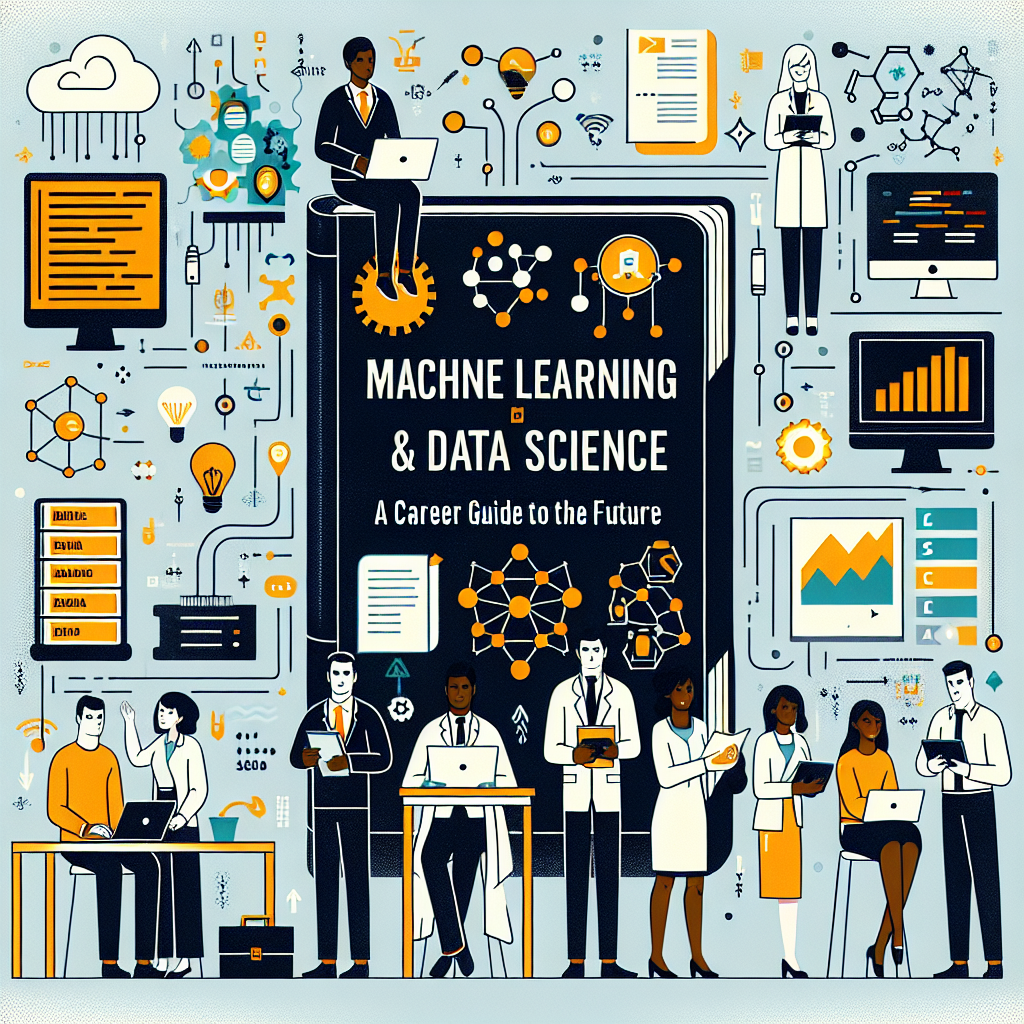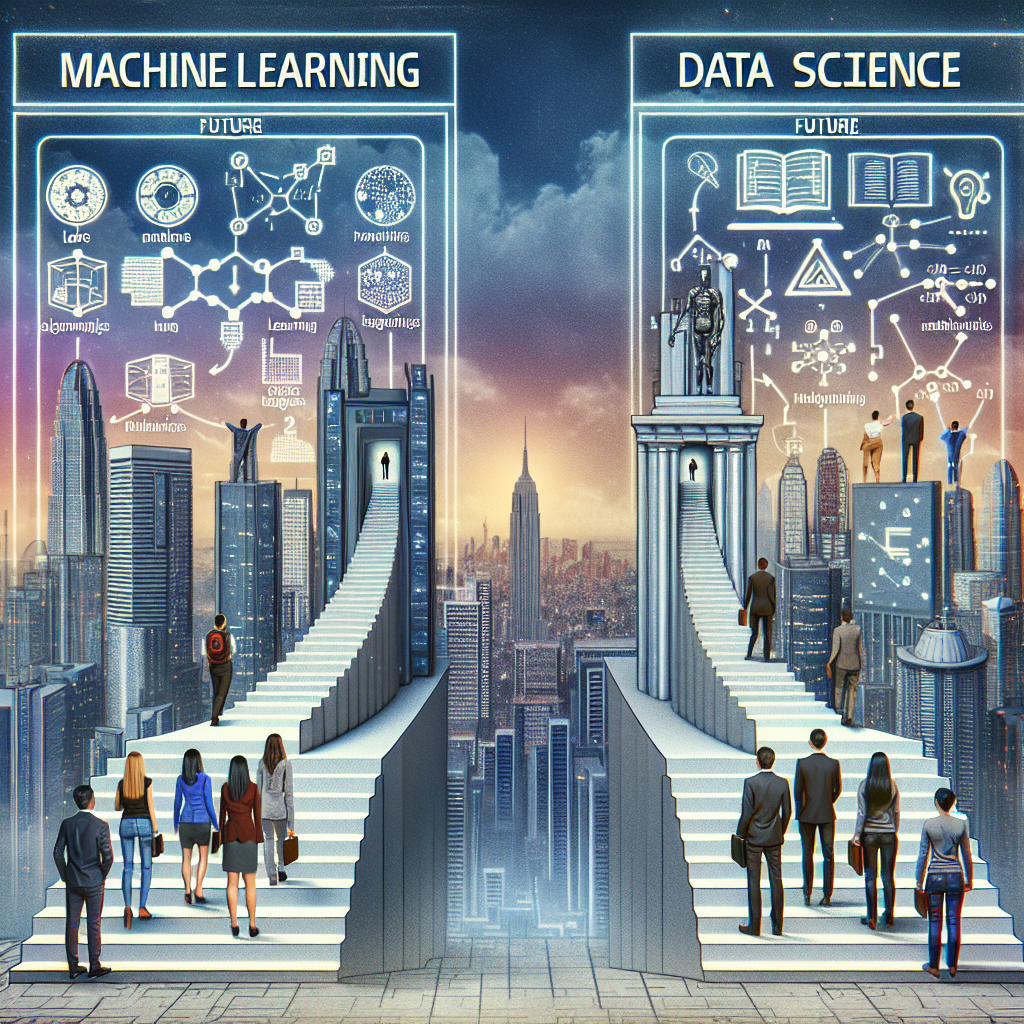-
Table of Contents
- Machine Learning & Data Science: A Career Guide for the Future
- Understanding Machine Learning and Data Science
- Why Choose a Career in Machine Learning and Data Science?
- Essential Skills and Tools
- Educational Pathways
- Career Opportunities and Roles
- Challenges and Considerations
- The Future Outlook
- Conclusion
Machine Learning & Data Science: A Career Guide for the Future

In the digital age, data is often referred to as the “new oil.” With the exponential growth of data generated by businesses, social media, IoT devices, and more, the demand for professionals who can analyze, interpret, and derive insights from this data has skyrocketed. Machine Learning (ML) and Data Science have emerged as two of the most promising and lucrative career paths in the 21st century. This article explores the scope, skills, career opportunities, and future outlook of these fields.
Understanding Machine Learning and Data Science
Machine Learning is a subset of Artificial Intelligence (AI) that enables systems to learn from data and improve their performance over time without being explicitly programmed. It involves algorithms that can identify patterns, make decisions, and predict outcomes based on historical data.
Data Science, on the other hand, is a multidisciplinary field that combines statistics, computer science, and domain expertise to extract meaningful insights from structured and unstructured data. It encompasses data collection, cleaning, analysis, visualization, and interpretation.
While ML is a tool within the broader field of Data Science, both disciplines are closely intertwined and often work in tandem to solve complex problems.
Why Choose a Career in Machine Learning and Data Science?
There are several compelling reasons to consider a career in ML and Data Science:
- High Demand: According to the U.S. Bureau of Labor Statistics, the demand for data scientists is projected to grow by 36% from 2021 to 2031, much faster than the average for all occupations.
- Attractive Salaries: Glassdoor reports that the average salary for a Data Scientist in the U.S. is around $120,000 per year, with Machine Learning Engineers earning even more.
- Versatility: These skills are applicable across various industries including healthcare, finance, e-commerce, manufacturing, and entertainment.
- Innovation: Professionals in this field are at the forefront of technological innovation, working on cutting-edge projects like self-driving cars, personalized medicine, and intelligent virtual assistants.
Essential Skills and Tools
To succeed in ML and Data Science, aspiring professionals need a blend of technical and analytical skills. Key competencies include:
- Programming Languages: Proficiency in Python and R is essential. Python, in particular, is widely used due to its simplicity and extensive libraries like NumPy, Pandas, Scikit-learn, and TensorFlow.
- Mathematics and Statistics: A strong foundation in linear algebra, calculus, probability, and statistical inference is crucial for understanding ML algorithms.
- Data Manipulation and Analysis: Skills in data wrangling, cleaning, and exploratory data analysis (EDA) are vital for preparing data for modeling.
- Machine Learning Algorithms: Knowledge of supervised and unsupervised learning techniques such as regression, classification, clustering, and neural networks.
- Data Visualization: Tools like Matplotlib, Seaborn, and Tableau help in presenting data insights effectively.
- Big Data Technologies: Familiarity with Hadoop, Spark, and cloud platforms like AWS, Azure, or Google Cloud is increasingly important.
Educational Pathways
There are multiple routes to enter the field of ML and Data Science:
- Formal Education: A bachelor’s or master’s degree in computer science, statistics, mathematics, or a related field provides a solid foundation.
- Online Courses and Certifications: Platforms like Coursera, edX, Udacity, and DataCamp offer specialized courses and nano degrees in ML and Data Science.
- Bootcamps: Intensive coding bootcamps provide hands-on experience and are ideal for career switchers.
- Self-Learning: Many professionals build their skills through self-study, open-source projects, and participation in competitions like Kaggle.
Career Opportunities and Roles
The career landscape in ML and Data Science is diverse, with roles that cater to different interests and skill sets. Some prominent job titles include:
- Data Scientist: Focuses on analyzing data to derive actionable insights and build predictive models.
- Machine Learning Engineer: Specializes in designing and deploying ML models into production environments.
- Data Analyst: Interprets data and creates reports to support business decision-making.
- AI Research Scientist: Works on developing new algorithms and advancing the field of artificial intelligence.
- Business Intelligence Developer: Designs strategies to assist business users in quickly finding the information they need to make better decisions.
Companies like Google, Amazon, Facebook, Microsoft, and Netflix are constantly hiring ML and Data Science professionals. Additionally, startups and mid-sized firms are increasingly investing in data-driven strategies, expanding the job market further.
Challenges and Considerations
While the field offers immense opportunities, it also comes with challenges:
- Rapidly Evolving Technology: Keeping up with the latest tools, frameworks, and research requires continuous learning.
- Data Privacy and Ethics: Professionals must navigate ethical concerns related to data usage, bias in algorithms, and user privacy.
- Interdisciplinary Knowledge: Success often requires understanding the domain in which data is being applied, such as healthcare or finance.
The Future Outlook
The future of ML and Data Science is incredibly promising. As organizations continue to digitize their operations and collect more data, the need for skilled professionals will only grow. Emerging trends such as AutoML (automated machine learning), explainable AI, and edge computing are set to redefine the landscape further.
Moreover, the integration of ML with other technologies like blockchain, IoT, and quantum computing will open new frontiers for innovation and application.
Conclusion
Machine Learning and Data Science are not just buzzwords—they represent a fundamental shift in how we understand and interact with the world. For those with a passion for problem-solving, analytical thinking,


